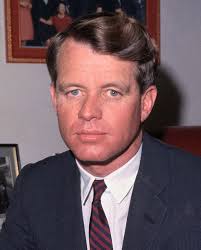Robert Kennedy: His Impact on American Politics and Society

Introduction
Robert Kennedy, often regarded as one of the most influential figures in American history, played a pivotal role in shaping the nation during the tumultuous 1960s. His commitment to social justice, civil rights, and the fight against poverty resonate even today, making his legacy relevant in contemporary discussions about political leadership and societal change.
Early Life and Political Rise
Born on November 20, 1925, Robert F. Kennedy grew up in a prominent political family. His early career began as a lawyer, but he quickly transitioned into politics, serving as counsel to Senator Joseph McCarthy before joining his brother, John F. Kennedy, in the 1960 presidential campaign. After John’s assassination in 1963, Robert’s political journey deepened, culminating in his own campaign for the presidency in 1968.
Advocacy and Achievements
Throughout his career, Robert Kennedy was an ardent advocate for social justice and civil rights. As the U.S. Attorney General from 1961 to 1964, he played a critical role in the enforcement of civil rights laws, famously sending federal marshals to protect Freedom Riders and shutting down segregationist operations in the South. His efforts were vital in combating racial inequality and advocating for the impoverished.
Presidential Campaign and Assassination
In 1968, Robert Kennedy announced his candidacy for the presidency, promoting a platform focused on uniting the nation and addressing issues such as poverty, injustice, and the Vietnam War. His campaign quickly gained momentum, appealing to a wide range of voters disillusioned by the political climate of the time. Tragically, his life was cut short when he was assassinated on June 5, 1968, shortly after delivering a victory speech following his win in the California primary.
Conclusion
The legacy of Robert Kennedy continues to inspire generations, highlighting the importance of compassion and social responsibility in leadership. His passionate rhetoric and commitment to justice remain relevant in today’s political landscape, prompting ongoing discussions around civil rights and social equity. As a symbol of hope and change, Robert Kennedy’s life reminds us that the fight for justice and equality is a continuous journey that requires unwavering dedication. Understanding his contributions is crucial for modern readers as they navigate today’s challenges in governance and social reform.
